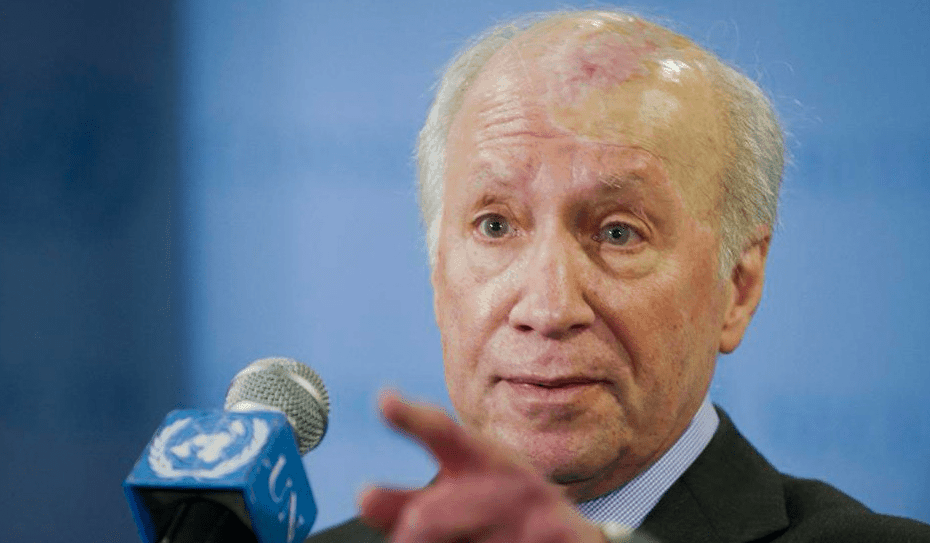
by Aggelos Skordas
A tripartite meeting between the representatives of Greece, FYROM and the United Nations Special Mediator for the Macedonian naming dispute, Matthew Nimetz, will be held on November 20 or 21, the Prime Minister of FYROM, Zoran Zaev, said late on Monday during an official visit to Ljubljana. The meeting’s aim is to intensify efforts in order to reach a solution over the former Yugoslav republic’s official name.
Zaev argued that it was reasonable, following his Social Democratic Union party electoral victory in the local elections held last month, to launch a new effort to resolve the longstanding naming dispute. Nimetz will meet with Greek envoy Adamantios Vasilakis and his counterpart from FYROM Vasko Naumovski, although it has not yet been clarified if the UN representative will hold separate meetings with the two diplomats in advance of a tripartite meeting. He also said that his country is attempting to reach national consensus on the naming issue, on the line of government, President Gjorge Ivanov and opposition (headed by former Prime Minister Nikola Gruevski’s right-wing nationalist party), but “in the direction of finding a solution rather than postponing it”.
Finally, Zaev expressed his conviction that the cultivation of friendly relations with Greece could act as a catalyst for finding a solution to the naming dispute. “Indeed, we are building friendly relations with Greece and in such a friendly atmosphere, I sincerely believe that a solution to this burning issue can be reached”, he concluded.
Meanwhile, on the sidelines of the Foreign Affairs Council in Brussels on Monday, Greek Foreign Minister Nikos Kotzias had a meeting with his counterpart of FYROM Nikola Dimitrov. “We had discussions with the Minister of Foreign Affairs of the Former Yugoslav Republic of Macedonia, and we looked at issues having to do with communication and the European Union’s communication mechanisms, which I stressed that one needs to have the right policy in order to have right communication. I underlined also that Europe needs a policy based more on values, on democracy, on its social work, and on a vision for a different society”, a statement issued by the Greek Ministry of Foreign Affairs reads.
On its behalf FYROM’s Ministry of Foreign Affairs issued a press release saying that Kotzias and Dimitrov discussed the process of surpassing the only open issue: “The ministers have exchanged opinions how to best use the upcoming period, in order to achieve progress in the process under the mediation of the UN, that is expected to be renewed at the soonest”, while adding that both have promised to lead an open, constructive goodwill dialogue that will contribute to the growth of mutual trust.
Zaev’s predecessor in the country’s Premiership, Nikola Gruevski, did little to reach an agreement with Greece, while his government’s agenda was based solely on nationalism, refusing to meet Greek demands. During his decade-long rule, the Balkan country’s capital city of Skopje was decorated with monuments depicting historical Macedonian figures, such as Alexander the Great and Philip II of Macedon. The so called “Skopje 2014” project has been strongly criticised for its high cost (estimated to more than 600 million euros) as well as for its aesthetic result, described as nationalist kitsch, attempting a re-interpretation of the historical record. Following his election Zaev declared that he is not willing to continue his predecessor’s policy which has damaged the relations between Athens and Skopje and resulted to the second’s blocking effort’s to join NATO and the European Union.
